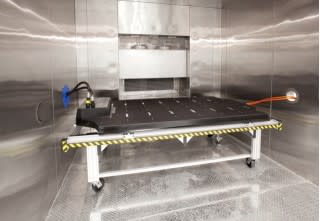California Energy Storage: Why It's Good News For Electric Cars
Using stored energy to smooth out the ebb and flow of power generation has been thoroughly discussed by utilities, but now it's starting to be put into practice on a large scale.
Southern California Edison (SCE) recently announced that it will purchase 250 megawatts of energy storage, as part of a larger 2,221-MW purchase of new generation assets.
RELATED: California Takes The Lead In Using Batteries For Grid Storage
The purchase will be the largest of its kind so far, according to a recent Navigant Research blog post.
Energy storage was always expected to be part of SCE's plan--which is intended to compensate for the closure of the San Onofre nuclear power plant--but Navigant itself had estimated that the amount included might be about 50 MW at the most.
By ordering five times as much as that projection, SCE has given a ringing endorsement to energy storage as a tool to stabilize the grid as well as take advantage of renewable sources.

SCE's decision also comes ahead of the implementation of a California energy-storage mandate, which will see the state's three large investor-owned utilities buy more than 200 MW of energy-storage capacity.
Navigant suggests that the state's mandate will lead to the "Oklahoma land rush" of the energy-storage industry.
Battery power
That should be a boon to the energy-storage industry, but it may well have a positive impact on electric cars as well.
MORE: Tesla Planning Grid Storage As Part Of Supercharger Expansion
Much of the energy-storage infrastructure will likely be composed of lithium-ion cells very similar to those used in electric-car battery packs.
The cells used for energy storage are grouped into packs as well, and multiple packs in turn make up an energy storage "plant."
That means there will be more demand for the same cells needed for electric-car packs, potentially driving the price down faster than the car business alone could have.

 Yahoo Autos
Yahoo Autos 
